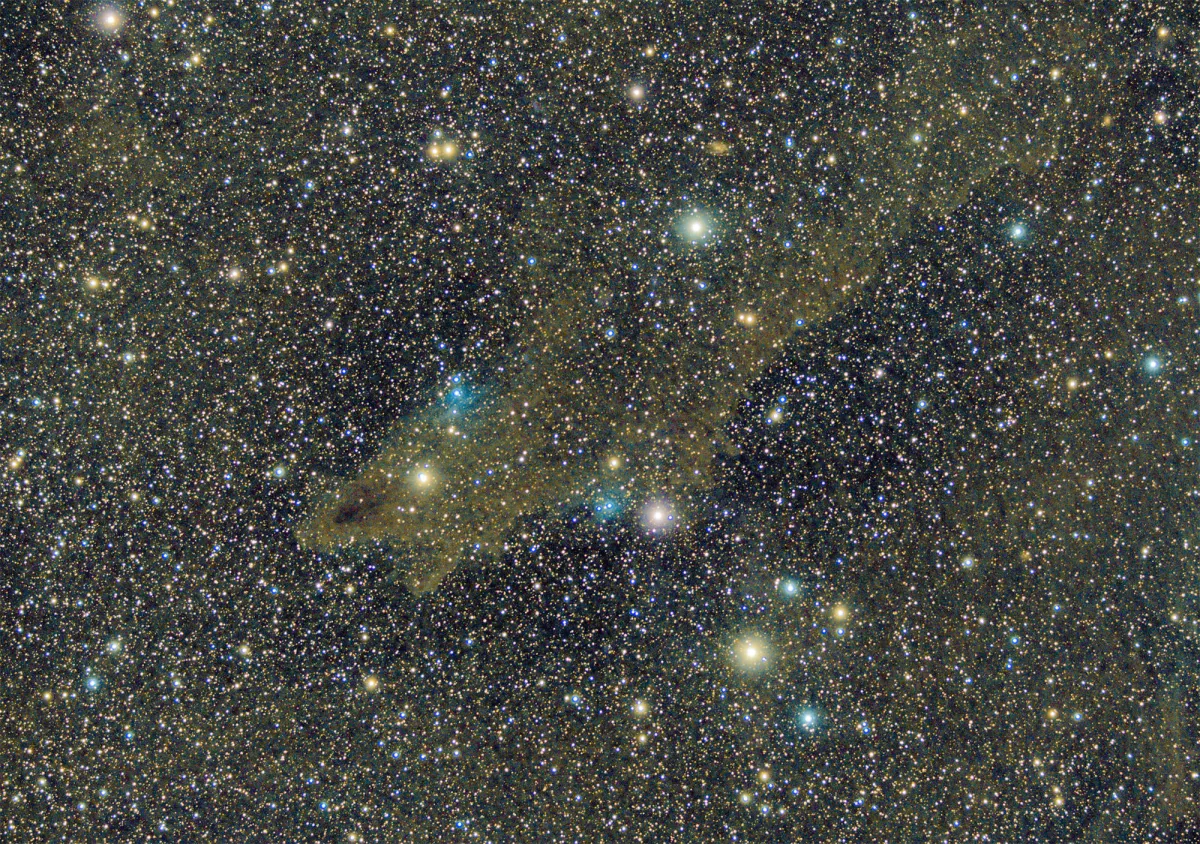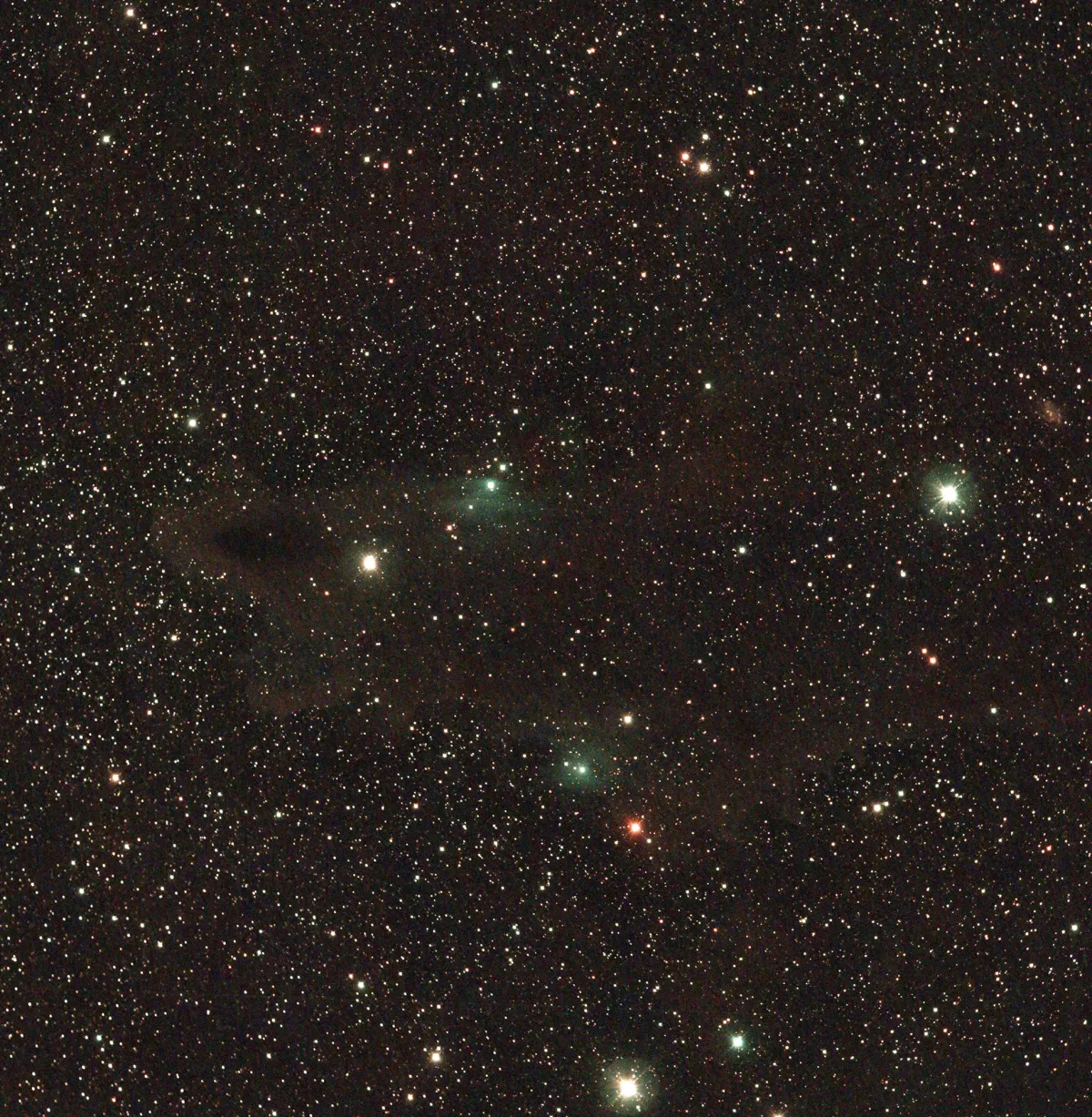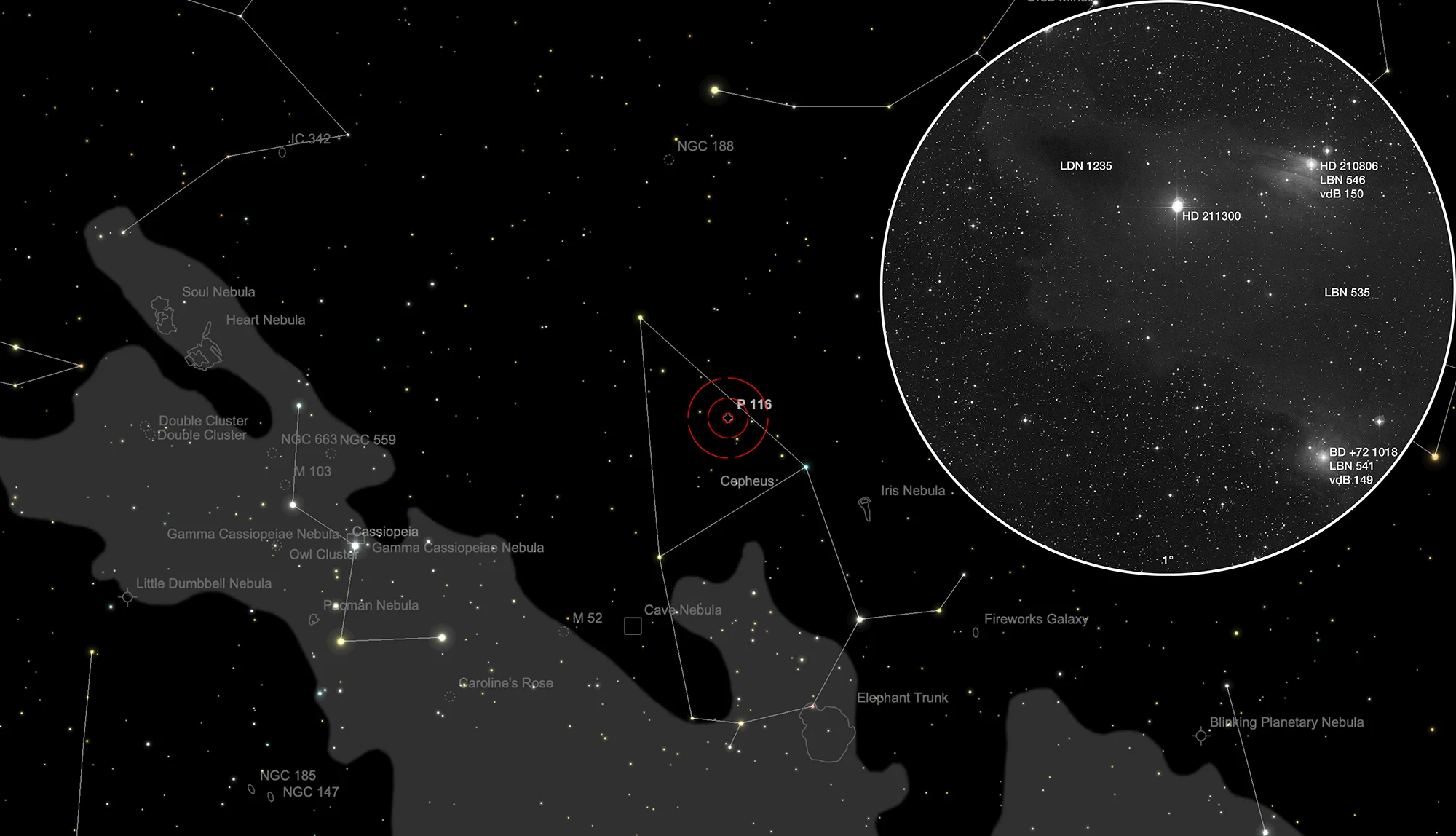Shark Nebula (LDN 1235)


History
In 1962 the American astronomer Beverly T. Lynds published a compilation of dark nebula in her «Catalogue of Dark Nebulae» that she found on the blue and red photo plates of the «National Geographic Palomar Observatory Sky Atlas» (POSS), taken with the 48 inch Oschin Schmidt telescope at Mount Palomar Observatory. The dark part of this nebula (the «eye of the shark») is listed there with the designation LDN 1235. [473]
In 1965 Lynds published her catalog of bright nebulae (H-II regions and reflection nebulae). The whole nebula is listed there as LBN 111.07+14.08 or also referred to LBN 535 and was barely detectable on the red photo plates. She also added two reflection nebulae (LBN 541 = DG 177, LBN 546 = DG 178) discovered on the POSS photo plates in 1963 by the German astronomers J. Dorschner and J. Gürtler from Jena. [270, 594]
Sidney van den Bergh identified in 1966 in his «Study of Reflection Nebulae» the reflection nebulae vdB 149 = LBN 541 to be illuminated by the star BD +72 1018 and the reflection nebula vdB 150 = LBN 546 to be illuminated by the star BD +72 1020 (HD 210806). [255]
Physical Properties
LDN 1235 is the densest and darkest part of the molecular cloud and very faint H-II region LBN 535. It hosts a star forming region. The age is estimated to 1-5 million years and the distance to earth between 330 and 370 pc. [593] Within the nebula are two blue reflection nebulae (vdB 149 and vdB 150), which are illuminated by nearby spectral type B8 stars. The distance to earth of these two stars is about 340 pc. [145]
| Name | Type | RA (J2000.0) | Dec (J2000.0) | PM [mas/y] | Parall. [mas] | Rvel [km/s] | z | SP Type | Size ['] | Magnitudes | Identifiers |
|---|---|---|---|---|---|---|---|---|---|---|---|
| LBN 535 | HII | 22h 01m 00s | +72° 54' 00" | LBN 111.07+14.08; LBN 535 | |||||||
| LBN 541 | RNe | 22h 09m 00s | +72° 48' 00" | DG 177; LBN 111.54+13.70; LBN 541 | |||||||
| LBN 546 | RNe | 22h 09m 00s | +73° 18' 00" | DG 178; LBN 111.84+14.10; LBN 546 | |||||||
| LDN 1235 | DNe | 22h 14m 55s | +73° 25' 00" | 10.2 × 4.2 | LDN 1235; TGU H725 P1 | ||||||
| vdb 149 | Y*O | 22h 09m 08s | +72° 53' 05" | 4.93 | 2.9049 | B8V | B 10.334; V 9.837; G 9.599105; R 9.677; J 8.541; H 8.427; K 8.343; g 10.18; r 9.697; i 9.483 | 2MASS J22090847+7253048; BD+72 1018; GEN# +0.07201018; GSC 04471-00204; Gaia DR1 2230823055972691968; Gaia DR2 2230823060270073216; Gaia DR3 2230823060270073216; TIC 366559075; TYC 4471-204-1; UBV M 4869; UCAC4 815-027807; VDB 149; WISE J220908.51+725304.9 | |||
| vdb 150 | Y*O | 22h 09m 40s | +73° 23' 27" | 5.133 | 2.9427 | -2 | -0.000007 | B8IV | U 8.1; B 8.42; V 8.35; G 8.311665; J 8.174; H 8.142; K 8.189 | 2MASS J22094012+7323273; AG+73 582; ALS 17646; BD+72 1020; GEN# +1.00210806; GSC 04475-00498; Gaia DR1 2278980187800837504; Gaia DR2 2278980192098276224; Gaia DR3 2278980192098276224; HD 210806; HIC 109389; HIP 109389; PPM 11099; SAO 10264; TD1 28870; TIC 366593903; TYC 4475-498-1; UBV M 26216; VDB 150 |
Finder Chart
The nebula LDN 1235 is located in constellation Cepheus. The constellation Cepheus is circumpolar, but it is highest in the sky in the months of May to January and the nebula can therefore be observed best then.
